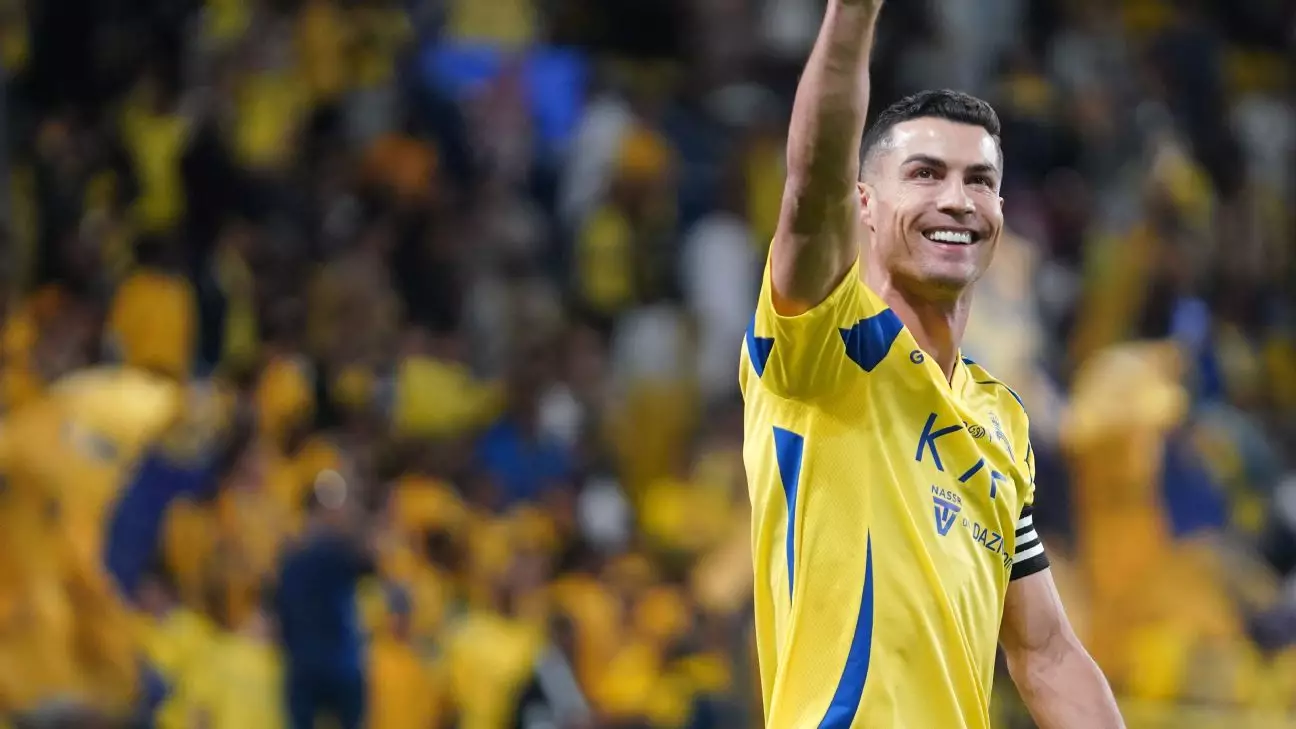The ongoing turmoil at Manchester United has become a topic of significant discourse, especially in the wake of recent performances under new manager Ruben Amorim. The legendary Portuguese forward Cristiano Ronaldo, a figure whose relationship with the club has fluctuated, has publicly expressed his views on the current state of affairs. His reflections provide both an intriguing analysis and a critical perspective on the deeper issues plaguing the club.
The Managerial Challenge at Manchester United
Amorim, who has faced his fair share of challenges since taking the helm, has not enjoyed a smooth transition. With five losses in ten games, including detrimental back-to-back defeats in the Premier League, there is growing pressure on him as he oversees a squad that once boasted exceptional talent and competitive spirit. However, Ronaldo’s assertion that the problems lie beyond the manager’s strategies deserves scrutiny. Managers often bear the brunt of fan and media discontent, yet to reduce Manchester United’s woes to poor leadership without considering the broader organizational context is overly simplistic.
Ronaldo’s analogy comparing the team to a diseased fish in an aquarium starkly underlines his belief that fundamental, systemic issues are at play. This perspective challenges the conventional notion that changing coaches can automatically regenerate a club’s fortunes. Indeed, it insinuates that the malaise within Manchester United is woven into its fabric, encompassing ownership, management philosophies, and player mentality.
Ronaldo has consistently criticized the club’s ownership, the Glazer family, suggesting that their management has been detached and detrimental to the team’s success. His statements imply a longing for a more engaged ownership model, one with a clear vision and commitment to revitalizing the club. The star’s aspirations for potential ownership reflect a sentiment shared by many fans who believe that change at the top is paramount for any meaningful transformation.
With the Glazers having faced intense scrutiny, Ronaldo’s cryptic remark about potentially owning a large club stirs speculation about how ownership dynamics can influence club culture. His past public disagreements with management further accentuate his desire for accountability—a requirement for any forward-thinking organization. The notion that the right figure at the helm could recalibrate the club from its core dovetails with a broader analysis of what it takes for organizations to evolve and thrive.
Ronaldo’s perspective on the Premier League being the “most competitive league in the world” resonates with many analysts, emphasizing the inherent challenge of maintaining a winning trajectory. The evolution of football, with its increasing parity and relentless pace, broadens the gap between success and failure. Teams that once found themselves comfortably in the upper echelons now struggle against previously underestimated opponents, making managerial tasks increasingly complex.
This highlights the urgent need for adaptive strategies that are adaptable and resilient. Whether it’s scouting talent, improving training methods, or fostering unity among players, every aspect must align to meet the demands of the league. The question remains whether Manchester United’s current leadership can pivot from their traditional approaches to embrace contemporary challenges.
Despite the struggles, Ronaldo conveyed an inkling of hope for Manchester United’s future, hoping that “the storm will finish and the sun will rise.” This optimism, juxtaposed with his critique, indicates an emotional investment in the club’s direction—regardless of where he currently lends his talents. As a former player who etched his name into the very foundations of the club, his reflections can serve as both a cautionary tale and a potential blueprint for recovery.
Ronaldo’s symbolic presence at events like the Globe Soccer Awards, where he was named Best Middle East Player, underscores how far he has come while retaining a vested interest in the fortunes of Manchester United. The journey forward requires not just adaptability but also introspection, collaboration, and a united vision among key stakeholders. Ultimately, the club’s resurgence hinges on finding common ground amid divergent philosophies, ensuring that discussions focus on sustainable progress rather than transient fixes.
As Manchester United charts its path forward, the insights from legendary players like Ronaldo could illuminate the way, reflecting lessons learned from the rich heritage of successes and failures within the club.

Leave a Reply